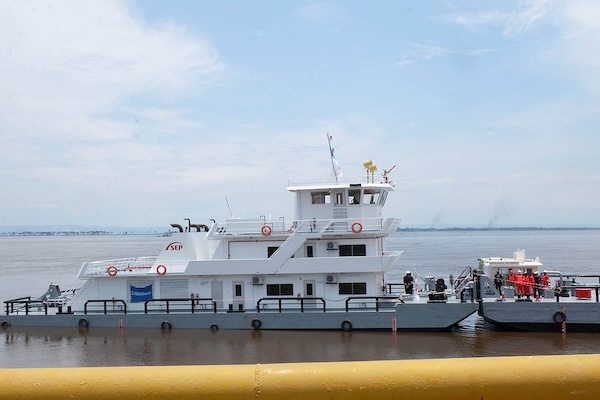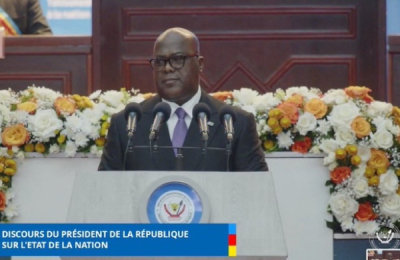-
Fuel supply to CAR discussed between Congolese and Central African ministers.
-
Electoral operations expected to increase consumption, while current stock levels are deemed insufficient.
-
Kinshasa requested to support logistics, especially river transport via SEP Congo.
The Central African Minister for Energy Development and Hydraulic Resources, Arthur Bertrand Piri, visited Kinshasa on August 19, 2025, to meet his Congolese counterpart, Acacias Bandubula. Discussions focused on the supply of petroleum products to the Central African Republic (CAR).
Minister Piri highlighted that several upcoming elections would drive an increase in fuel consumption. In addition to regular needs, electoral operations—including deployment of equipment, logistics, and security—would add to demand. Current stock levels were described as “insignificant” by Central African authorities.
"Usually, from June onwards, the barges start to go up. But this year, real rains only started at the end of July. So it wasn't until the beginning of August that we began the upturns, timidly. This put us two months behind schedule, which affected the national stock," explained Minister Piri.
About 80% of CAR’s official fuel consumption passes through the DRC and is transported by river, a route roughly half the cost of road transport. However, this corridor is available only from July to December each year.
To address this logistical gap, Bangui requested support from Kinshasa, particularly for operational coordination. SEP Congo (Services des entreprises pétrolières congolaises) manages unloading tankers at the port of Ango-Ango in Matadi, transfers fuel by pipeline to Kinshasa, and transports it by river to CAR.
On the same day, the Congolese Minister of Hydrocarbons met with the professional committee of petroleum product importers to examine the situation. He issued instructions to facilitate the transit of petroleum products destined for CAR.
Ronsard Luabeya










